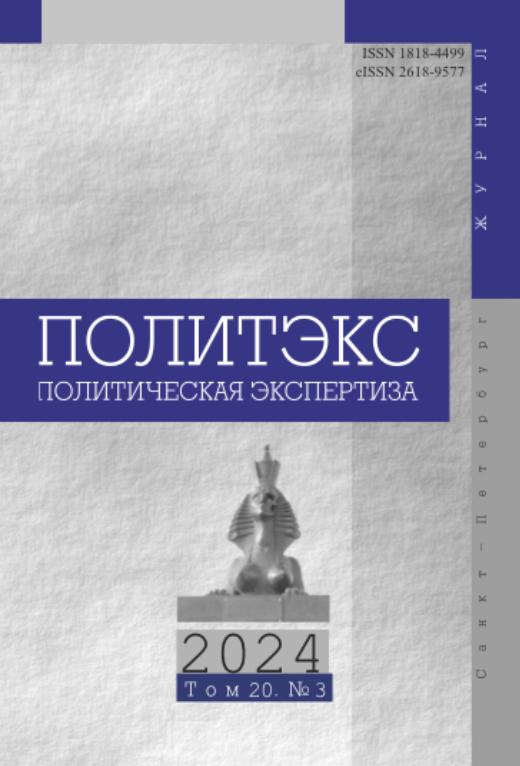THE FORMATION OF A TRANSNATIONAL PARTY SYSTEM IN THE EUROPEAN UNION: MAIN ACHIEVEMENTS AND OBSTACLES ON THE EVE OF THE 2024 EUROPEAN ELECTIONS
DOI:
https://doi.org/10.21638/spbu23.2024.305Abstract
The article analyzes the transnational parties of the European Union. The author characterizes both the main achievements and remaining obstacles in the formation of a fully functioning supranational party system on the eve of the elections to the European Parliament in 2024. For this purpose, the evolution from transnational party federations/confederations to parties registered and funded at the European level is examined. In addition, the motivation for such supranational party cooperation among national parties and patterns in the distribution of European parties across the political spectrum are identified. The text assesses the consequences of the failure to implement the lead candidate (Spitzenkandidat) institution in 2019 and the lack of visibility of transnational parties in election materials. Finally, the potential of the provisions of the European Parliament resolution for the future of parties at the European level are explored. They concern transnational lists led by lead candidates, a single European constituency and a pan-European minimum percentage threshold with relaxations for national and linguistic minority parties. The author comes to the conclusion about the risk of the announced reform for the positions of small the European Democratic Party and the European Christian Political Movement. However, the chances for further implementation of the provisions of the document remain low, due to the low level of support for the initiatives in the Council.
Keywords:
TRANSNATIONAL PARTY, EUROPEAN INTEGRATION, POLITICAL GROUP, EUROPEAN PARLIAMENT, LEAD CANDIDATE (SPITZENKANDIDAT), ELECTIONS
Downloads
Downloads
Published
How to Cite
Issue
Section
License
Articles of "Political Expertise: POLITEX" are open access distributed under the terms of the License Agreement with Saint Petersburg State University, which permits to the authors unrestricted distribution and self-archiving free of charge.




